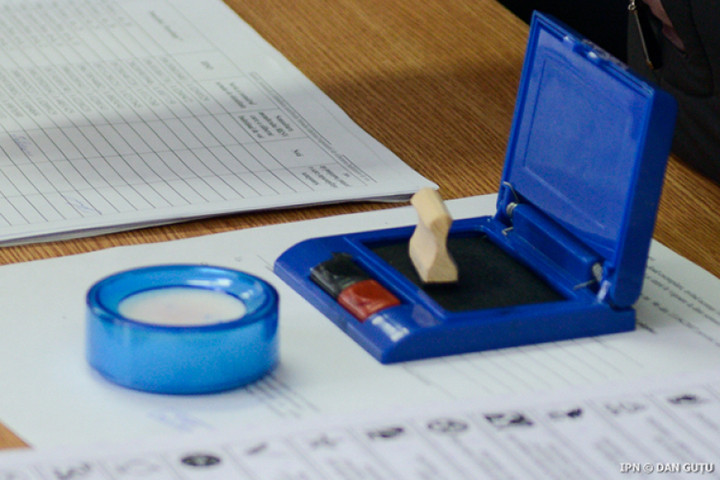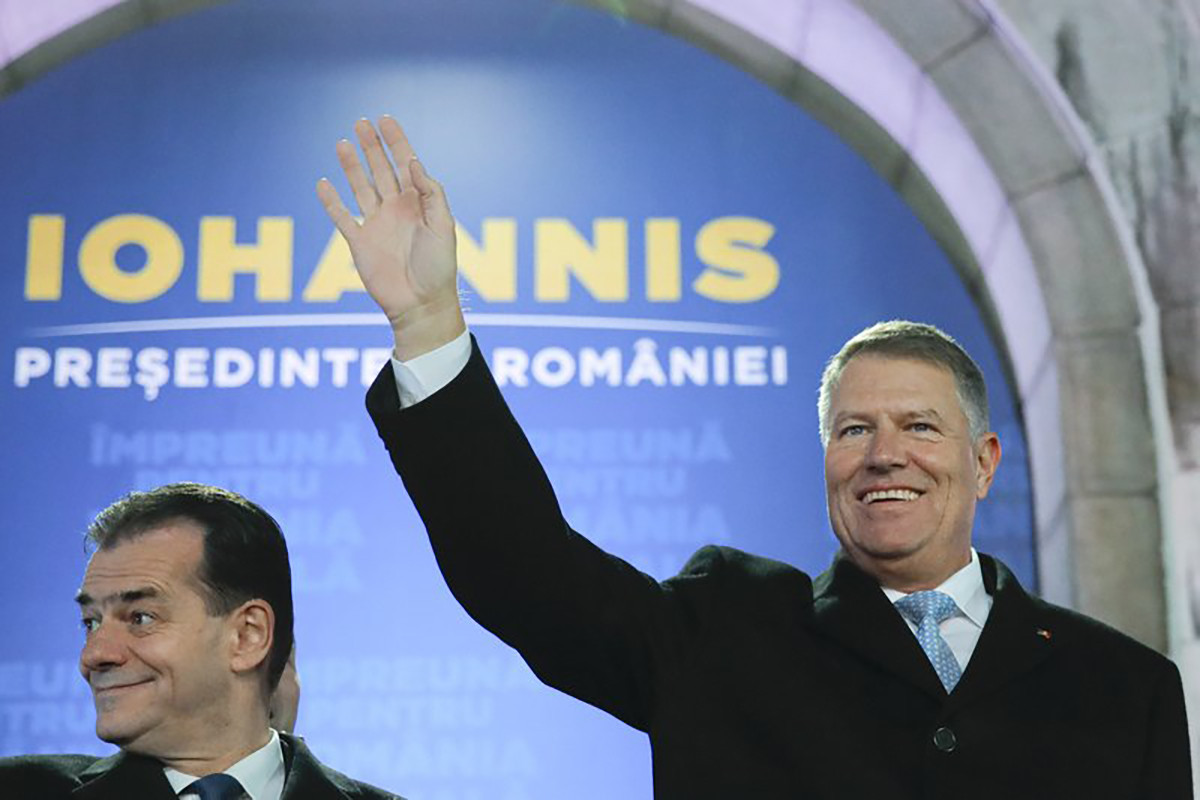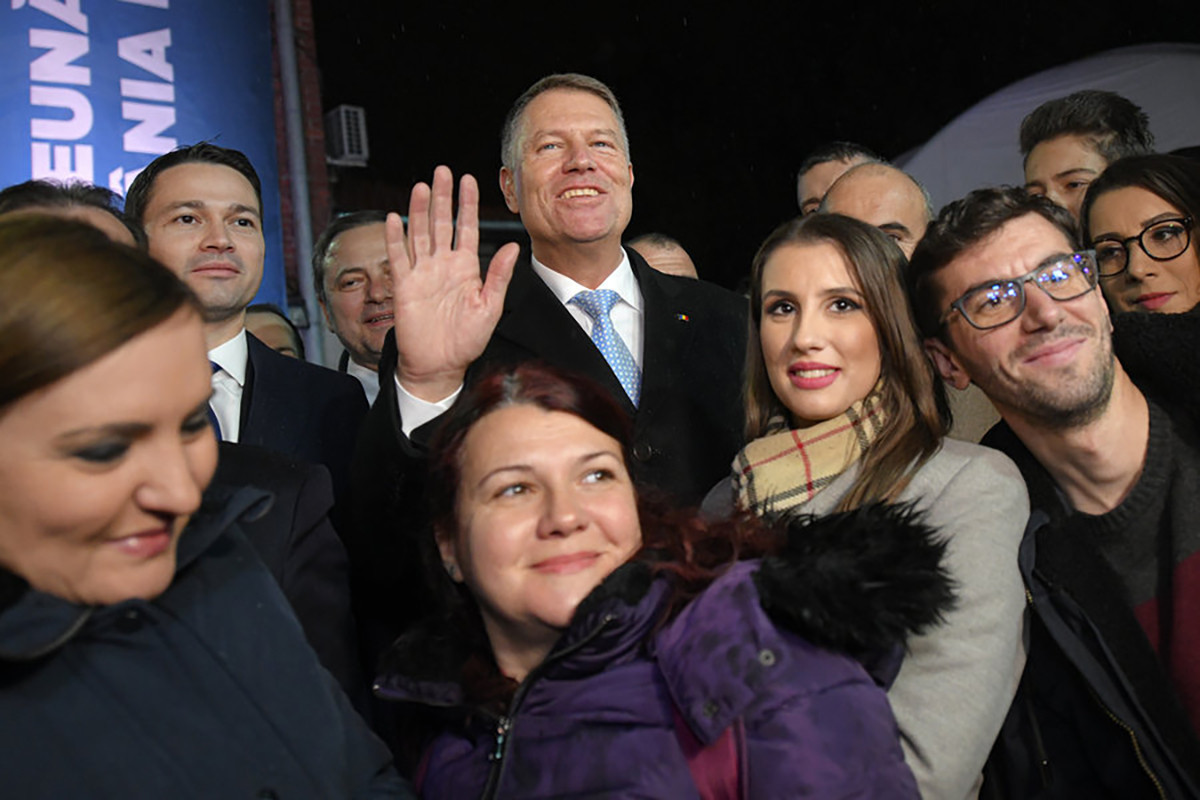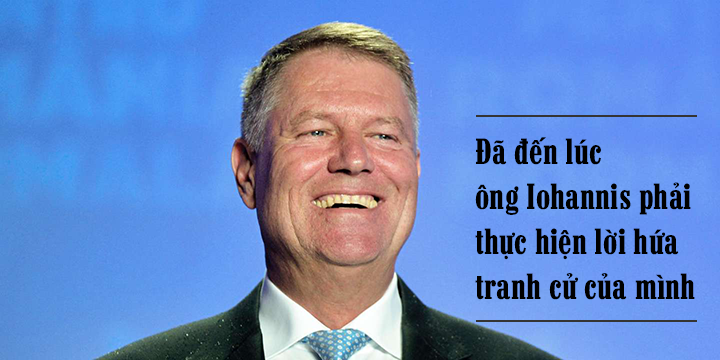Romanian President Wins With Promise of 'Normality'
(Baonghean) - Klaus Iohannis was re-elected as President of Romania on November 24, with a fairly easy victory in the second round of voting with commitments to continue fighting corruption and strengthening the rule of law. Whether the time is ripe for a new start in Romanian politics is something that many people are paying attention to.
Easy win
At the time when only 88% of the votes were counted, the center-right Iohannis had 63.2% in hand, far surpassing his opponent - the leader of the Social Democratic Party (SDP) Viorica Dancila - the recently "ousted" Romanian Prime Minister, who only received 36.8% of the votes. According to the AP news agency, after receiving information predicting his victory, Iohannis made a short speech at the headquarters of the National Liberal Party (NLP): "Romania wins! Today, normal, modern, European Romania has won. The Romanians are the heroes of this day. They voted in large numbers and this is the most important achievement today."
“I receive this victory with joy, gratitude, humility and faith in Romania,” said Iohannis, a politician in his sixties who served as mayor of Sibiu, is a member of Romania’s German minority and before entering politics was a high school physics teacher.
 |
| The second round of the Romanian presidential election has ended with victory for Klaus Iohannis. Photo: IPN |
It should be recalled that Ms. Dancila - the former head of the Government but was ousted on October 10 after failing to pass a confidence vote in the National Assembly, due to the apparatus being entangled in corruption allegations, and was also criticized by the EU for introducing judicial reforms that undermined the rule of law and the independence of judges. Then, in early November, lawmakers supported the minority government led by Prime Minister Ludovic Orban of the NLP.
Despite lacking an executive role, the Romanian President still possesses significant decision-making power.
As many people know, Mr. Iohannis has often been at odds with Ms. Dancila and the SDP over judicial reforms and other legal regulations. Therefore, this time, having many common ideological values, Iohannis and Orban are expected to join forces to strengthen anti-corruption measures. Although lacking an executive role, the Romanian President still possesses significant decision-making power, including on national security and foreign policy issues. Having been elected for another five-year term, this leader can reject the prime minister candidates proposed by the parties as well as the judiciary candidates nominated by the government.
 |
| President Klaus Iohannis waves to supporters, next to Prime Minister Ludovic Orban. Photo: AP |
Keep the promise
According to VOX, over the past 12 years, since joining the European Union (EU), Romania has been considered the center of the bloc's efforts to strengthen the integrity of civil servants in its 28 member states. According to Transparency International, the EU itself "still has a long way to go if it is to effectively tackle corruption." However, in Sunday's vote, Romania showed how an "old continent" country can make erratic but still steady progress towards honest administration, with regular "pushes" from the EU.
Romanian voters put their faith in the president for a second term, perhaps in part because of what he has already accomplished.
According to observers, Iohannis is particularly popular with the middle class, as well as the young, well-educated people at home and abroad. Of course, he inevitably made some mistakes in his first term, due to pressure from the SDP and its influence on certain institutions. But it is fair to say that voters in the Black Sea country put their faith in the president for a second term, perhaps partly because of what he has achieved. Since 2014, Iohannis has won with his anti-corruption efforts, mainly through his support for an independent judiciary. He even participated in a mass protest in 2017 against a ruling party that was found to be corrupt in parliament. The protest was one of several mass demonstrations in recent years that signaled growing popular support for fighting corruption and dreaming of a “modern, European, normal Romania,” as Mr. Iohannis described it.
 |
| Mr. Iohannis poses with the media after voting in Bucharest on November 24. Photo: AP |
His re-election comes after the ruling SDP suffered a setback in October. Former SDP leader Liviu Dragnea was jailed for corruption earlier this year. The party also suffered heavy losses in the European Parliament elections in May. Voters may have been discouraged after the party undermined law enforcement institutions, allowing hundreds of corrupt officials to escape justice. Romania now even has a party called the Romanian National Salvation Alliance, which focuses almost exclusively on eliminating graft and corruption. These victories are notable, especially in a country where a quarter of the population of 20 million earn less than $5.50 a day. About half of Romanians are farmers, the highest proportion in the EU.
As new prime minister, Ludovic Orban, a member of the NLP and an ally of the president, faces the daunting task of restoring the rule of law and cutting a bureaucracy built on nepotism and political loyalty. High levels of corruption have kept Romania out of the EU’s passport-free travel zone and prevented it from adopting the euro.
 |
| Photo: Reuters |
As for Iohannis, he has shown that he has learned from his past mistakes and won with a combination of pragmatism and patience, qualities that were needed to defeat the SDP. What most Romanians want now is a return to normalcy, as reflected in their vote for Iohannis. They want the rule of law restored like in other EU countries, an independent judiciary and honest lawmakers. It is time for Iohannis to deliver on his campaign promise, with a fresh start, and the time is ripe.

